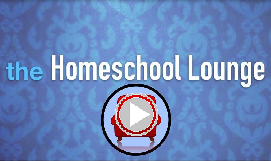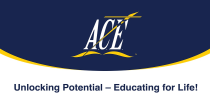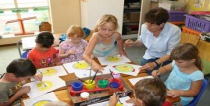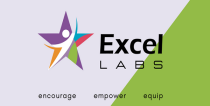Giving home education the recognition and legislation it deserves
Malcolm X wrote, “Education is the passport to the future, for tomorrow belongs to those who prepare for it today.” Somehow, the future seems more daunting than ever, with a plethora of overwhelming options to choose from. How do we reshape education to prepare well?
These are the hot questions on the minds of most parents, the home education community, and the Pestalozzi Trust in particular, as they defend and work to support the development of supportive laws for home education that will benefit everyone. The Portfolio Committee on Basic Education has responded positively to the Pestalozzi Trust and other home education bodies’ recent presentations regarding the BELA Bill.
BELA Bill under fire again
Home educators have been protesting the BELA Bill with the help of the Pestalozzi Trust from the start, and the conversation is getting more attention than ever. In recent meetings with the Committee of the Portfolio on Basic Education, the following problems with the BELA Bill were reviewed, namely:
- Restriction of curriculum choice — home education is about having the option to choose the curriculum best suited to the individual needs of children
- Unwarranted home visits from officials who are not adequately informed on home education and how it works
- Unfettered regulatory powers that allow the minister of education to make home education difficult and/or impossible for families
- Unjustified penalty clause that would criminalize parents — it is unconstitutional since it would remove parents from their children, destroying families
- The cost of enforcing prosecution against home-education parents does not make sense
- A lack of meaningful engagement with the home education community
- A lack of research required to follow the process for submitting the Bill, admitted to by the Minister on 8 February 2022
- Clause 37 in the Schools Act is irrelevant to the Act’s purpose
Evidence of problematic statements made against home education families was also discussed, i.e., the Council of Education Ministers said on 9 March 2017, “The implication of scrapping the home education should be explored; religious fundamentalism could also be a factor in this regard. Discouraging home education should be created by making parents pay for the expenses in this regard.”
This statement reveals a negative agenda and, moreover, parents already pay for home education expenses anyway. Additionally, during the SEIA study of 2018, there is a record that “senior management also recommended that in the quest of developing this policy, they should create some significant stringent measures that will make it not easy for parents to opt for home education.”
Dr. Trevor Coombe commented on the lack of research done on the above and other related issues in the 2nd draft discussion document published on 17 June 2015, saying, “A comprehensive understanding of the home education phenomenon in South Africa can be achieved only after an independent research study has been carried out, on the basis of a research design in which both the departments and the home education bodies have confidence. Until reliable information is available, the development of a new home education policy and amendments to home education law should be approached with due circumspection.”
The recent presentations and discussions with the Portfolio Committee on the BELA Bill have shown promise and a desire from government to understand and learn from the proposals and recommendations of the home education community, and it is hoped that this will positively impact the development of supportive legislation going forward.
Context of education problems in recent years
With the advent of the pandemic and long-term lockdowns since 2020, the home education community has seen exponential growth in online education providers — something that few schools were sufficiently well-equipped to supply. While schools struggled and scrambled to help teachers provide online support to students and parents, these providers (and pre-existing ones) filled a gap for thousands of families.
The need is significant, and the government is not able to meet supply. As it is, placement for students in schools in provinces like the Western Cape and Gauteng has been problematic since long before the pandemic. With these issues as context, it makes it even more ludicrous for parents’ home education registrations to be declined. The Pestalozzi Trust is currently addressing this issue in court with the MEC of KZN and has yet to see the matter come to a feasible resolution.
Thousands more parents were forced to turn to home education in the interim by lockdown circumstances, as well as increasing financial pressure. This resulted in many parents not sufficiently informing themselves on homeschool approaches, methods, and options before panic-buying into education provider offerings, getting disappointed, frustrated, etc. Some online providers have done well, but others have been a disappointment, to the great frustration of these stressed families. These online providers are not yet regulated by a sufficiently expert professional body.
The past few years have also further highlighted the gap between the current education system in mainstream schools and the skills required to equip children for the 4IR, and more parents are becoming concerned about aligning education with current digital technology and developments.
Improving the provision of online schooling and home education
Online schooling and home education are not necessarily the same thing — online schooling is most often a way to replicate school at home, via online delivery through pre-recorded and/or live online lessons. Home education is a lifestyle with a holistic perspective on learning through various methods, curriculums, opportunities, etc.
The recent presentations and discussions with the Portfolio Committee on the BELA Bill have shown promise and a desire from government to understand and learn from the proposals and recommendations of the home education community, and it is hoped that this will positively impact the development of supportive legislation going forward.
Even so, it’s abundantly clear that online education providers are here to stay, so it’s a matter of improving this industry as much as possible and setting standards that benefit providers and families. Parents have an expectation of support, delivery of quality education, affordability, and an end result that’s worthwhile in teenagers’ transition to tertiary education and the working world.
This presents the issue of accreditation — another conversation to be had with education experts, industry experts, and professional regulatory bodies. It is an exciting, history-making opportunity to reset how education is trained for, provided, and assessed.
How legislative support can improve home education (and education as a whole) going forward
The Pestalozzi Trust, Gauteng Home Education Association, and other home education groups comprising veteran and current home education families proposed some helpful recommendations for the way forward, namely:
- Design legislation for what it is supposed to regulate
- The Department of Education cannot be both player and referee in their position
- Extensive independent research and alignment of legislation and research with emerging trends in education and the working world
- Provide for consultative bodies in NEPA to facilitate more helpful conversations and collaboration in determining home education legislation going forward
The above points are just the highlights. If the Department of Education can take hands with researchers and home educators in the process of compiling supportive legislation, other wonderful possibilities can include:
- Legalization and state support for cottage schools can go a long way towards ensuring that children in rural areas’ basic human rights to education are provided properly. This will also eliminate the need to remove those children from their families and hometowns to be educated at great (and unaffordable) expense elsewhere.
- The provision of education to thousands of children who cannot be placed in schools, yet still have a right to receive an excellent education, rather than continuing to be disadvantaged in the present and future.
- Continued and meaningful employment for teachers, tutors, and subject specialists.
- An economic boost by supporting home education businesses with investments, technology, expansion opportunities, etc.
There is hope for the ongoing BELA Bill conversation
The more meaningful conversations can be had between the Department of Education, home-educating families and experts, and researchers, the more awareness it brings to the best (and already-proven) methods of education centered around children’s unique needs and paces of development. Increased awareness brings a better understanding of what is needed, what works, what isn’t working, and why. From there, it becomes exciting rather than daunting to create legislative room for children to be educated using a variety of methods, excellent curriculums, providers, and opportunities.
The evolution of education is in a history-defining phase like never before, presenting a critical opportunity for parents, experts, youth, and government to collaborate to bring education and curriculum options out of the past into the present, and into better alignment with the demands of the current career world!

Events
Legal & Research
Centres
Homeschool ABC
Support
Curriculums
Sunrise readers: From pre-reading ...
Parents and educators - these popular reading books with an ...
British International Distance ...
We offer children in South Africa the opportunity to begin their ...
Has no content to show!
































Comments